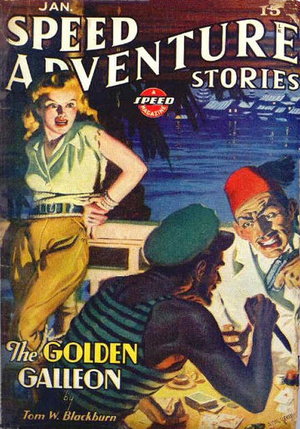Rules of writing are subjective
My editor sent this to me and it helped me see things a bit more clearly. So I'm passing it on to any and all authors, new and old, that struggle to follow the 'rules' of writing. I hope it provides a little bit of insight for you.
xoxo
Christine
What it Means When Someone Tries to Tell You THE Rules of Good Writing

Charlie Jane Anders
There's
only one rule for how to write a story, and that's: "Write a good
story." Apart from that, anything goes, as long as you can pull it off.
(And some things are harder to pull off than others.) But sometimes, people will try and teach you ironclad rules of fiction writing. Like, avoid an omniscient narrator, or introduce your main character on the first page.
There's only a few things it could mean when someone tries to teach you the rules of writing.
1) These are rules that work for this person, and they might work for you, too.
Every
writer has rules that work for him or her personally — that's part of
figuring out how to make this crazy anarchic process happen. At the very
least, you can't write any story without figuring out what rules you're
going to follow for that story in particular. So it's easy enough to go
from figuring out rules that work for you personally to deciding that
you've got the rules that work for everybody — and indeed, these rules
might turn out to be helpful for you as well.
 And
And
if someone says, "This is the rule everybody should follow," just try
and hear, "This is a rule that works for me personally, and might work
for you." And really, this person is giving you an insight into his or
her writing process, which could be super valuable and help you to cop a
bit of that writer's mojo. A rule that works for someone else is often
something you should at least give a try.

2) This person is writing in a particular genre where these things are accepted conventions.
And
if you want to write epic fantasy or hard space opera or whatnot, then
you will indeed have to know what rules people currently writing in
those subgenres are adhering to. (Unless you want to be the radical
rebel who redefines the genre, or dies trying. Or, in some notable
cases, both.)
3) This person knows that some writers can break these rules and prosper — but has decided that you're not one of those writers.
At
least, not yet. Because maybe you need to learn to color inside the
lines before you start ignoring the lines. Maybe you need to figure out
how to write a pretty standard issue story, where we meet the main
character in the first sentence and the conflict is spelled out right
away and the action is fully linear and there are no adverbs and
everybody learns a lesson — and then once you've mastered that, you can
start mixing it up.

 On
On
the other hand, let's say for the sake of argument that you're an
absolute beginner like David Bowie. And you're still writing your first
few stories ever — following someone else's rules, no matter how simple,
might make that early learning curve *harder*, not easier. You might be
trying so hard to conform to this other person's formula that you get
messed up. Plus, when you're just getting started, that's the time you
should take the most crazy risks. Try everything. Try everything twice.
Don't look both ways before you cross the street. Make as many and as
crazy mistakes as you can. Your early stories are probably going to be
epic disasters anyway — although you might break that rule, too — so you
might as well make the most interesting mistakes possible. You'll screw
up either way, and you might learn more by screwing up big.
Should you have your own rules?
Should
you have a code of honor, like a noble warrior in the wasteland? Or
should you just write without any rules at all? This is obviously a
super personal decision, and one that probably results from making lots
and lots of mistakes along the way.
Full size

(Plus
if you listen to enough publishing people talk at conventions or
whatnot, you'll hear stuff like, "I hate when a fantasy novel is written
entirely in the second person, future tense. That's an auto-reject."
And you'll learn a few things that might make your book or story a
harder sell. These things aren't rules, they're just things to keep in
mind if you want to sell your work to a mainstream publisher.) Just
like there are no rules that work for everybody (other than "finish
that story"), there are no rules about whether you should personally
have rules. But it's probably true, for most of us, that every story has
its own rules.
 Like,
Like,
if you start writing a story in tight third person, you probably can't
slip out of third person into first person halfway through the story
without annoying the reader. You might decide that a story is going to
alternate between events in the present and flashbacks, and that means
you're more or less committed to that structure for the rest of the
story. If you set a particular tone in this story, you'll want to stick
to it. Don't write any checks you're not going to cash, don't cash any
checks you didn't write. Etc.
(But of course, you can always revise the story from the ground up, and then the "rules" for that story can change.)
So
let's say that for all but the most experimental fiction, an individual
story or novel is going to have its own set of rules — in which case
the question becomes, "How much do you want the rules for this one story
to become the rules for every story you write?"
Full size

And
the answer to that question, in turn, depends on a lot of stuff —
including the trade-off between consistency and freedom. You may want
the leeway to sit down and figure out the "rules" anew every time you
start to write a piece of fiction. Or you may want to stick to a set of
choices that you know work for you. Plus, you may decide that your
"brand" as an author includes a set of parameters, like "tight third
person narration" or "experimental tone-poem time-slips," and you want
readers to feel confident that they'll always get those things when they
see your name on something. Not to be crass, but part of getting a
following as an author is creating a consistent brand — but of course,
your brand can be "you never know what to expect with this writer." I
guess my final thought here is: You don't have to have any rules at
all, at least not rules that apply to everything you write. But
if you do have consistent rules, you should at least know what they are,
so you're not applying them blindly — or serving them rather than
having them serve you. Rules should work for you, or there's no point to
them.
Oh, and one other thing that's a more or less universal
rule — try to have fun, as much as possible. You're making shit up. That
should be fun, at least some of the time.
Images via SubTropic Bob, Kocojim and McClaverty on Flickr.
http://io9.com/5978762/what-it-means-when-someone-tries-to-tell-you-the-rules-of-good-writing?utm_source=io9+Newsletter&utm_campaign=84d551b375-UA-142218-29&utm_medium=email
xoxo
Christine
What it Means When Someone Tries to Tell You THE Rules of Good Writing

Charlie Jane Anders
There's
only one rule for how to write a story, and that's: "Write a good
story." Apart from that, anything goes, as long as you can pull it off.
(And some things are harder to pull off than others.) But sometimes, people will try and teach you ironclad rules of fiction writing. Like, avoid an omniscient narrator, or introduce your main character on the first page.
There's only a few things it could mean when someone tries to teach you the rules of writing.
1) These are rules that work for this person, and they might work for you, too.
Every
writer has rules that work for him or her personally — that's part of
figuring out how to make this crazy anarchic process happen. At the very
least, you can't write any story without figuring out what rules you're
going to follow for that story in particular. So it's easy enough to go
from figuring out rules that work for you personally to deciding that
you've got the rules that work for everybody — and indeed, these rules
might turn out to be helpful for you as well.
 And
Andif someone says, "This is the rule everybody should follow," just try
and hear, "This is a rule that works for me personally, and might work
for you." And really, this person is giving you an insight into his or
her writing process, which could be super valuable and help you to cop a
bit of that writer's mojo. A rule that works for someone else is often
something you should at least give a try.

2) This person is writing in a particular genre where these things are accepted conventions.
And
if you want to write epic fantasy or hard space opera or whatnot, then
you will indeed have to know what rules people currently writing in
those subgenres are adhering to. (Unless you want to be the radical
rebel who redefines the genre, or dies trying. Or, in some notable
cases, both.)
3) This person knows that some writers can break these rules and prosper — but has decided that you're not one of those writers.
At
least, not yet. Because maybe you need to learn to color inside the
lines before you start ignoring the lines. Maybe you need to figure out
how to write a pretty standard issue story, where we meet the main
character in the first sentence and the conflict is spelled out right
away and the action is fully linear and there are no adverbs and
everybody learns a lesson — and then once you've mastered that, you can
start mixing it up.

 On
Onthe other hand, let's say for the sake of argument that you're an
absolute beginner like David Bowie. And you're still writing your first
few stories ever — following someone else's rules, no matter how simple,
might make that early learning curve *harder*, not easier. You might be
trying so hard to conform to this other person's formula that you get
messed up. Plus, when you're just getting started, that's the time you
should take the most crazy risks. Try everything. Try everything twice.
Don't look both ways before you cross the street. Make as many and as
crazy mistakes as you can. Your early stories are probably going to be
epic disasters anyway — although you might break that rule, too — so you
might as well make the most interesting mistakes possible. You'll screw
up either way, and you might learn more by screwing up big.
Should you have your own rules?
Should
you have a code of honor, like a noble warrior in the wasteland? Or
should you just write without any rules at all? This is obviously a
super personal decision, and one that probably results from making lots
and lots of mistakes along the way.
Full size

(Plus
if you listen to enough publishing people talk at conventions or
whatnot, you'll hear stuff like, "I hate when a fantasy novel is written
entirely in the second person, future tense. That's an auto-reject."
And you'll learn a few things that might make your book or story a
harder sell. These things aren't rules, they're just things to keep in
mind if you want to sell your work to a mainstream publisher.) Just
like there are no rules that work for everybody (other than "finish
that story"), there are no rules about whether you should personally
have rules. But it's probably true, for most of us, that every story has
its own rules.
 Like,
Like,if you start writing a story in tight third person, you probably can't
slip out of third person into first person halfway through the story
without annoying the reader. You might decide that a story is going to
alternate between events in the present and flashbacks, and that means
you're more or less committed to that structure for the rest of the
story. If you set a particular tone in this story, you'll want to stick
to it. Don't write any checks you're not going to cash, don't cash any
checks you didn't write. Etc.
(But of course, you can always revise the story from the ground up, and then the "rules" for that story can change.)
So
let's say that for all but the most experimental fiction, an individual
story or novel is going to have its own set of rules — in which case
the question becomes, "How much do you want the rules for this one story
to become the rules for every story you write?"
Full size

And
the answer to that question, in turn, depends on a lot of stuff —
including the trade-off between consistency and freedom. You may want
the leeway to sit down and figure out the "rules" anew every time you
start to write a piece of fiction. Or you may want to stick to a set of
choices that you know work for you. Plus, you may decide that your
"brand" as an author includes a set of parameters, like "tight third
person narration" or "experimental tone-poem time-slips," and you want
readers to feel confident that they'll always get those things when they
see your name on something. Not to be crass, but part of getting a
following as an author is creating a consistent brand — but of course,
your brand can be "you never know what to expect with this writer." I
guess my final thought here is: You don't have to have any rules at
all, at least not rules that apply to everything you write. But
if you do have consistent rules, you should at least know what they are,
so you're not applying them blindly — or serving them rather than
having them serve you. Rules should work for you, or there's no point to
them.
Oh, and one other thing that's a more or less universal
rule — try to have fun, as much as possible. You're making shit up. That
should be fun, at least some of the time.
Images via SubTropic Bob, Kocojim and McClaverty on Flickr.
http://io9.com/5978762/what-it-means-when-someone-tries-to-tell-you-the-rules-of-good-writing?utm_source=io9+Newsletter&utm_campaign=84d551b375-UA-142218-29&utm_medium=email
Published on February 03, 2013 19:58
No comments have been added yet.



